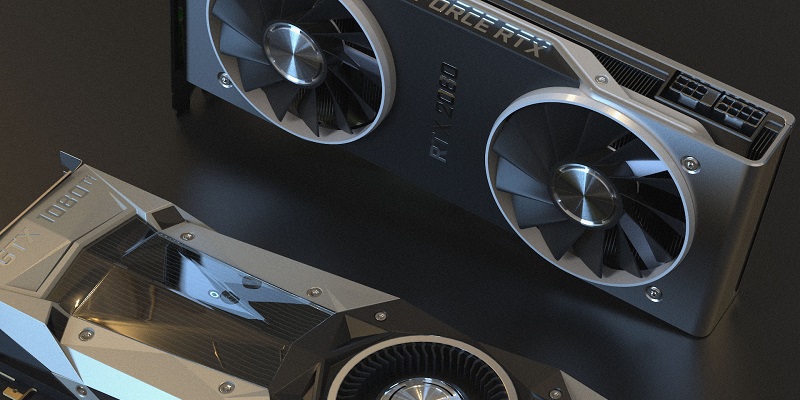NVIDIA’s GeForce RTX 4060 Ti 16 GB GPUs have recently made headlines, albeit for controversial reasons. The company’s decision to release the product without any official review coverage created quite a stir in the tech community. This article explores the lackluster market reception for the GeForce RTX 4060 Ti 16 GB, examining its benchmark performance, pricing, anticipated price drop, reasons for poor sales, and the disappointing launch for NVIDIA.
Benchmark Performance and Pricing
Early benchmarks released by NVIDIA showcased the performance capabilities of the GeForce RTX 4060 Ti 16 GB. However, it didn’t quite live up to the expectations set by its predecessor, the 8 GB model. Surprisingly, the 16 GB variant only displayed minor single-digit gains, leaving consumers underwhelmed by the marginal improvement. Moreover, the $100 price increase for the 16 GB model seemed unjustified, further dampening enthusiasm for the product.
Lack of Interest and Expected Price Drop
Despite NVIDIA’s efforts, the GeForce RTX 4060 Ti 16 GB failed to generate significant interest among consumers. The lack of traction in European markets was expected due to a multitude of factors. The absence of an official review program, combined with inadequate marketing efforts, severely impaired the card’s ability to attract potential buyers. As a result, a price drop was anticipated as a necessary step to combat the lackluster sales performance.
Price Drop at Mindfactory
In response to the disappointing market reception, the German retailer Mindfactory decided to take matters into their own hands and discount the GeForce RTX 4060 Ti 16 GB below its manufacturer’s suggested retail price (MSRP). This move by Mindfactory acknowledges the necessity for a price adjustment to stimulate demand and regain consumer interest. However, it also highlights the GPU’s inability to meet the initial sales expectations within the European region.
Reasons for Poor Sales
The underwhelming performance gains and inflated price tag contributed to the lack of consumer interest in the GeForce RTX 4060 Ti 16 GB. While minor single-digit improvements were demonstrated in official benchmarks, they fell far short of justifying the card’s higher cost compared to its 8 GB variant. The gaming segment, its primary target market, found little value in paying an additional $100 for a marginal increase in performance.
Limited Gaming Capabilities
Despite boasting double the VRAM of its predecessor, the GeForce RTX 4060 Ti 16 GB failed to impress gamers looking for higher resolution experiences. The card’s performance was primarily limited to 1080p gaming, leaving users wanting more when attempting to push it to 1440p. Only by utilizing upscaling technologies like DLSS could the GPU deliver satisfactory performance at higher resolutions, further reducing its appeal in the market.
Limited Usefulness for Gaming Segment
While the 16 GB variant showcased potential for stable diffusion and AI performance due to its increased memory capacity, these advantages did not significantly impact the gaming segment. The additional memory was overshadowed by minor performance gains and the significant price difference when compared to the 8 GB variant. As a result, the GeForce RTX 4060 Ti 16 GB failed to convince gamers to invest in the higher-priced model.
Disappointing Launch for NVIDIA
The launch of the NVIDIA GeForce RTX 4060 Ti 16 GB can be described as nothing short of disappointing for the company. Poor sales, combined with the lackluster market reception and absence of a comprehensive review program, marred the initial release. NVIDIA’s failure to generate sufficient excitement for the improved GPU left them with little to celebrate, forcing them to reevaluate their marketing strategy and pricing model.
The release and subsequent market reception of the NVIDIA GeForce RTX 4060 Ti 16GB can only be described as disappointing. Despite NVIDIA showcasing minor performance gains, this higher-priced variant failed to attract the attention of gamers due to its inability to deliver significant improvements over the 8GB model. The limited gaming capabilities and inflated price tag made it an unattractive option for most consumers. To turn things around, a price correction may be necessary; however, it remains uncertain if NVIDIA will take this step. Only time will tell if the GeForce RTX 4060 Ti 16GB can salvage its position in the market and regain consumer trust.

